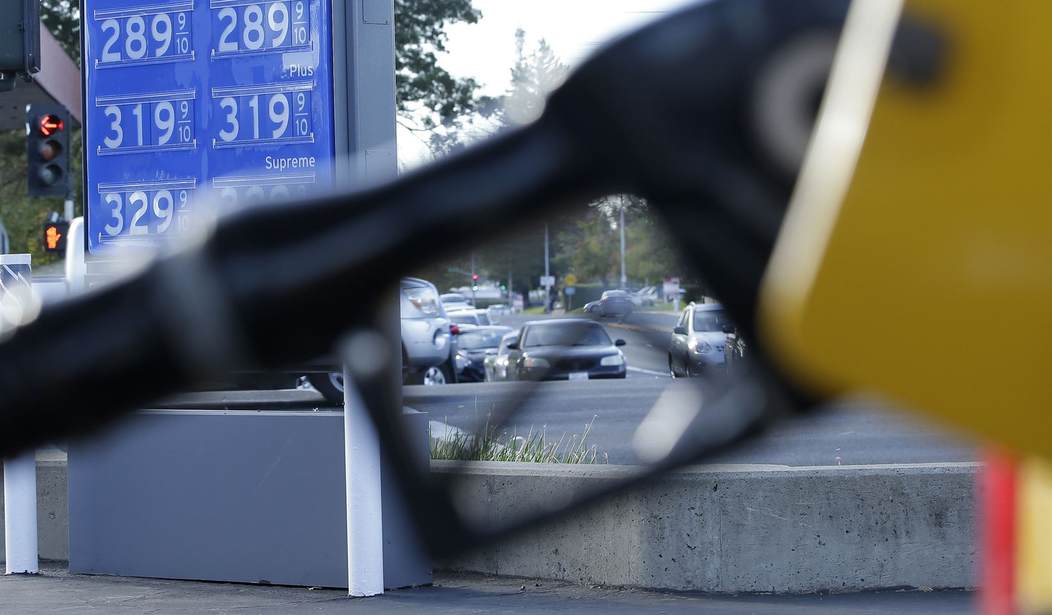As we celebrate our independence this week, Americans - especially conservationists - should applaud the Supreme Court decision overturning the Chevron Doctrine.
Critics, naturally, claimed the ruling would trigger environmental chaos and the perpetuation of a “climate crisis.”The far-left Union of Concerned Scientists bemoaned the decision for allegedly giving oil and gas companies “more latitude to slow down and block regulations” and “pollute with near impunity. The Atlantic said the ruling will “erode away the country’s climate and environmental ambitions.” The Nature Conservancy claimed, “The decisions are likely to present challenges to preserving the many decades of progress we have made in protecting people and the planet.”
Will America become a toxic hellscape in a post-Chevron world? I - a conservationist - am here to assure you this won’t happen. And I’m not alone.
Luke Hilgemann, executive director of the International Order of T. Roosevelt, said radical environmentalists have misconstrued the ruling.
“It is literally leveling off the playing field and making it easier for all citizens to push back against the federal bureaucracy that has become overpowered, and quite honestly is stepping outside of the bounds of the law,” he told me on the District of Conservation podcast. “What this ruling did was open up more opportunities for us as private citizens, as sportsmen, as anglers, as conservationists to push back against these types of ridiculous policies and regulations that have no basis in the law.”
Casey Mattox, vice president of legal strategy at Stand Together, also rebuked Chevron defenders, writing, “Congress must do its duty rather than kick the can back to the agencies or the courts. That means clearer laws, more specificity, and more compromise.”
Recommended
How anti-democratic to return rulemaking to Congress where it belongs!
The 40-year Chevron Deference - originating from the 1984 Chevron vs. NRDC ruling - enabled the federal bureaucracy to grow unchecked when judges deferred to so-called expert regulators whenever laws were ambiguous.
Chief Justice Roberts, writing the opinion, however noted this can’t be applied retroactively: “By overruling Chevron, the Court does not call into question prior cases that relied on the Chevron framework.” But Justice Elena Kagan argued in her dissent, “Some agency interpretations never challenged under Chevron now will be.”
The first test post-Chevron is a lawsuit challenging the legality of the Department of Labor (DOL)’s Environmental, Social, and Governance (ESG) rule allowing the consideration of non-financial factors in 401(k) plans. But there are plenty of other circumstances where future application can apply to legal challenges of Biden’s radical climate agenda.
Pending legal challenges to the Department of Energy (DOE)’s War on Household Appliances could lean on this decision. DOE, helmed by Secretary Jennifer Granholm, is pushing net-zero energy policies to force Americans to decarbonize their homes with enticements of promised “climate savings.” However, these directives will lead to more expensive household appliances that have been falsely advertised as “green.”
A lawsuit filed last month by the Competitive Enterprise Institute challenging DOE’s rules on dishwashers and washing machines could crack down on the lawless DOE. Why? The Fifth Circuit Court of Appeals ruled in January that it’s “unclear the Department of Energy has the statutory authority” to regulate water use in these appliances.
Similarly, the Biden administration’s targeting of lead tackle and bullets on national wildlife refuge lands is another perfect candidate in a post-Chevron world. Banning lead tackle and bullets is a direct attack on fishing and hunting–the largest drivers of true conservation efforts in the U.S.
The Biden administration leans on faulty science to justify incremental lead phaseouts of these items, conflating lead fragments with pure lead. But pending lawsuits challenging these lead phaseouts could proceed–and prevail–if plaintiffs prove the Environmental Protection Agency (EPA) can’t rewrite the Toxic Substances Control Act. And they might succeed going off of precedent from 2014 when the U.S. Court of Appeals for the District of Columbia determined EPA “lacked statutory authority to regulate bullets and shots” under the Toxic Substances Control Act. Their decision a decade ago argued EPA can’t regulate lead because it’s not ambiguous:
“As in so many of our cases, the Supreme Court’s decision in Chevron, U.S.A., Inc. v. Natural Resources Defense Council, Inc.,1984), guides our review of EPA’s interpretation of TSCA. … Only if the statute is ambiguous do we defer to the agency’s reasonable construction. Id. Here, unlike the district court, we see nothing ambiguous about TSCA section 21. That provision allows “[a]ny person” to petition the agency for a rulemaking to regulate a toxic substance.”
Chevron Deference’s end is a perfect complement to the landmark 2022 West Virginia vs EPA decision that clamped down on EPA’s authority to craft rules that put net-zero energy goals above grid reliability.
A bloated bureaucracy and an endless sea of regulations aren’t motivators for Americans to support conservation efforts. The opposite is true.
The more onerous and costly regulations imposed on people under the guise of environmentalism, the less our peers are inclined to support related causes. Ironically, imposing climate-centric environmental regulations is shown to harm the environment further. Even the EPA once acknowledged onerous rulemaking is often “too expensive, reduces economic growth, hurts international competitiveness, and causes widespread layoffs and plant closures.”
The Chevron Doctrine’s demise will prove this assertion correct: Deregulation won’t lead to the decimation of American conservation efforts.

























Join the conversation as a VIP Member